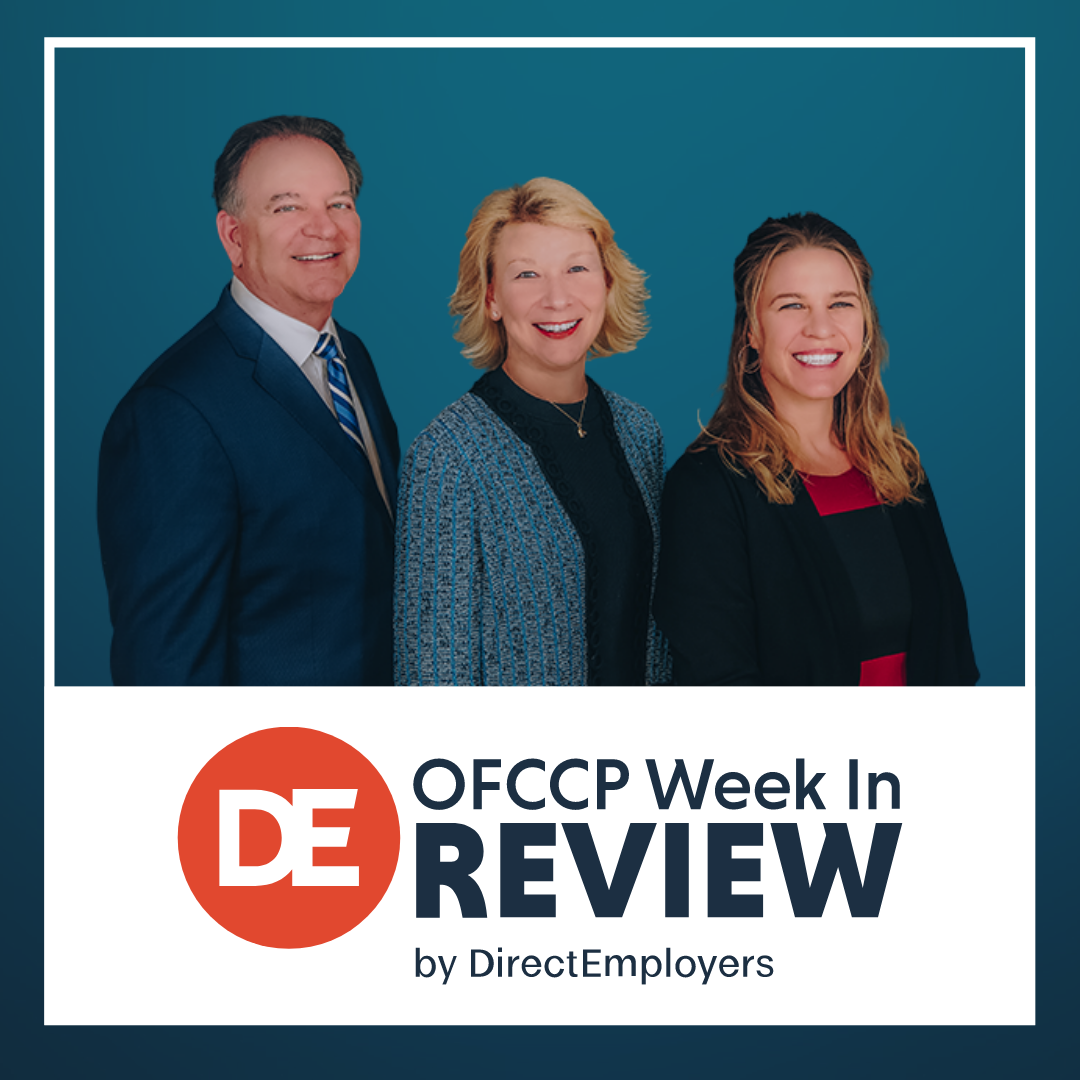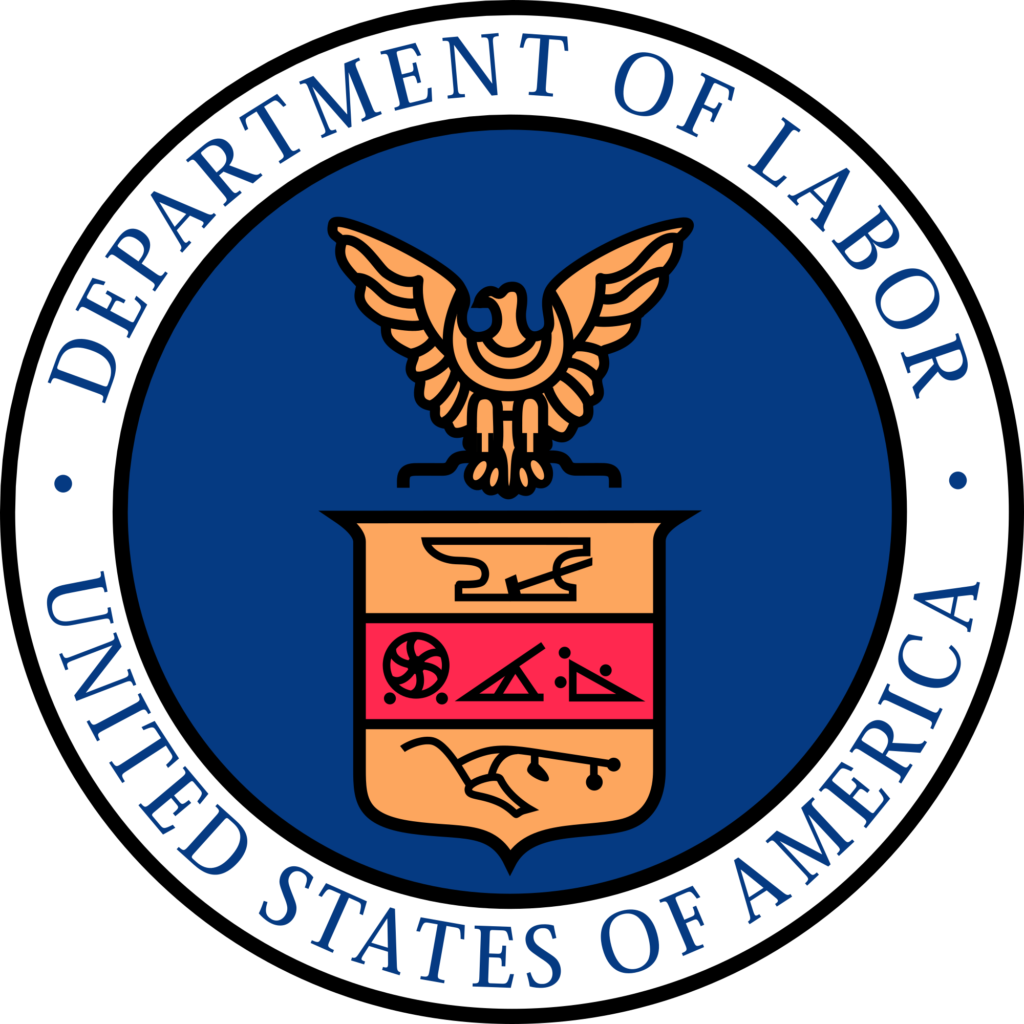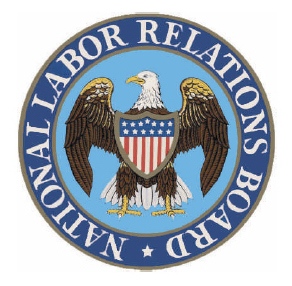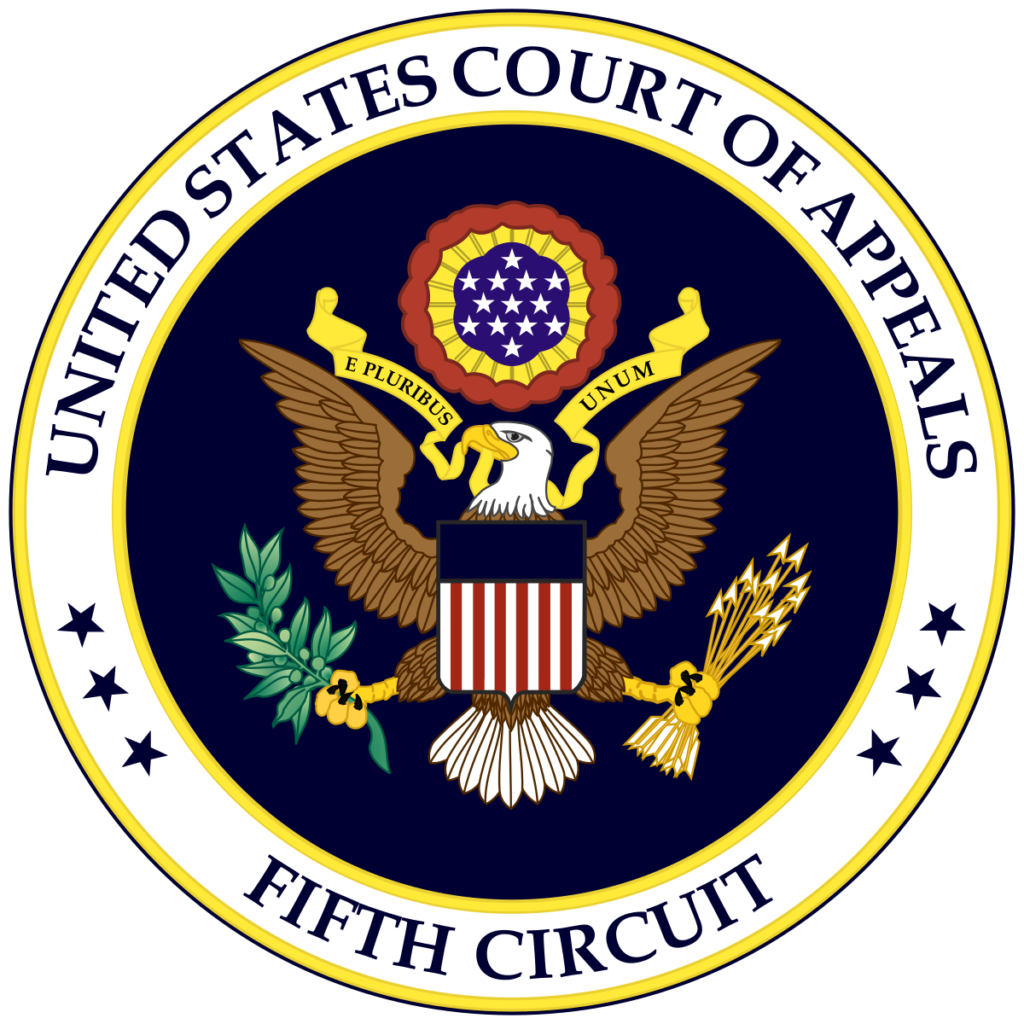
- I-9 Form Flexibility Extended, Again…This Time to October 31, 2022
- Advisory Committee on Apprenticeship to Hold Public Meeting
- NLRB Taps into the Federal Mediation and Conciliation Service for Good Faith Bargaining Assistance
- New Federal Contractor Audit List Coming in May (This Month!)
- Mind The Gap: Are Your Recruiters Prepared?
- The Fifth Circuit Court of Appeals Held that the NLRB General Counsel Job is a Species of Political Appointments Subject to the Advice and Consent of the Senate Which Does Not Guarantee the Appointee’s Term in Office
- Job Accommodation Network Shifting Communication Strategy to Meet Employer Needs
- Deadline Looming For EEO-1 Survey – Then Its Failure To File Phase
Monday, April 25, 2022: I-9 Form Flexibility Extended, Again…This Time to October 31, 2022

See the original ICE news release from March 20, 2020, for more information to obtain, remotely inspect, and retain copies of the identity and employment eligibility documents to complete Section 2 of Form I-9. Please also consult ICE’s guidance for clarification on this provision.
ICE also now encourages employers to begin, at their discretion, the in-person verification of identity and employment eligibility documentation for employees who were hired on or after March 20, 2020, and who presented such documents for remote inspection in reliance on the flexibilities first announced in March 2020.
See Also
Tuesday, April 26, 2022: Advisory Committee on Apprenticeship to Hold Public Meeting

Meeting Details
- Monday, May 16, 2022
- 10 AM to 5 PM EST
- Virtual Log-In Instructions (to come)
The Department can accommodate up to 3,000 participants on the virtual platform. The Office of Apprenticeship will post a meeting summary on its website.
Agenda
The primary purpose of the May 16th meeting is for the ACA to discuss and approve the final Six-Month Interim report. Anticipated agenda topics for this meeting include the following:
- Subcommittee Final Presentations and Discussion
- Departmental Remarks
- Full Committee Vote on Six-Month Interim Report
- Federal Workforce Initiatives
- Road Map Ahead and Implications for Future Topics
- Public Comment
Advisory Committee on Apprenticeship
Secretary of Labor Marty Walsh reestablished the Advisory Committee on Apprenticeship in May 2021, and in Sept. 2021, the Department announced the appointment of Members to serve two-year terms.
Committee Members provide advice and recommendations on issues related to Registered Apprenticeship. Through its work with the Department, the Committee seeks to align apprenticeship opportunities with education and workforce systems, leading to more equitable access for all individuals to participate and succeed in the National Apprenticeship system and the expansion, modernization, and diversification of apprenticeships in new industries.
Wednesday, April 27, 2022: NLRB Taps into the Federal Mediation and Conciliation Service for Good Faith Bargaining Assistance

“The National Labor Relations Act is advanced when we coordinate with other agencies to have a whole-of-government approach, which builds on the strengths, expertise, and resources of each Agency to advance national policy,” said General Counsel Jennifer Abruzzo.
These changes require the NLRB’s Field offices to take the following actions.
- Notify (via email) the FMCS of new bargaining agreements and include a document titled “Notice Of Federal Mediation And Conciliation Services For Initial Contract Bargaining” when sending Certification of Representative to unions and employers.
- Notify (via email) the FMCS of allegations of unfair labor practices and include a document titled “Notice Of Federal Mediation And Conciliation Services For Bad Faith Bargaining Allegations” in letters to unions and employers alleging violations of bad faith bargaining under 8(a)(5) or 8(b)(3).
- Engage a mediator from the FMCS to help facilitate when seeking remedies in bad faith bargaining cases or use FMCS training on collaborative bargaining.
The FMCS provides services at no cost at the time of certification, for first contract bargaining, and for filed charges alleging bad faith bargaining. In addition, the organization now offers assistance to conduct card counts.
Wednesday, April 27, 2022: New Federal Contractor Audit List Coming in May (This Month!)
The Civil Rights and Human Services Sub-Committee of the House Committee on Education and Labor held a Hearing lasting 1.5 hours to examine the “policies and priorities of the EEOC and the OFCCP.” OFCCP Director Jenny Yang (D) and EEOC Chair Charlotte Burrows (D) were in the hot seats, each reading a prepared written 5-minute speech followed by questions (also held to 5-minutes) from Members of the Committee and invited Members of the House not on the Sub-Committee.
Setting the Stage
Chair Suzanne Bonamici (D-OR) opened the Hearing by singing the praises of both Agencies. However, Ranking Member Mark Fultcher (R-ID)) sang quite a different tune in his opening statement, stating that both agencies are “struggling to meet the needs of American workers and jobseekers” and should “stop treating business owners as predators.”
While even observers close to the Committee were uncertain why the Sub-Committee called for the Hearing, it was clear from beginning to end that both parties saw this Hearing as an opportunity to draw out testimony each thought useful to rally their respective political bases at the mid-year election, now only 6 months away. Republican Members were also successful to draw out important policy plans not previously known from both Ms. Yang and Ms. Burrows.
Issues Raised
Committee Members raised the following issues as to OFCCP.
- The ability of faith-based organizations to fairly compete for federal government contracts with the rescission of the Trump Administration’s Final Rule on Religious Discrimination (see WIR: “OFCCP Published Its NPRM to Rescind the Trump Religious Discrimination Exemption Rule, As Predicted Last Week”)
Director Yang said she was unable to comment on the issue since it is still subject to an open OFCCP Proposed Rulemaking the Biden OFCCP published on November 8, 2021. That Proposed Rule seeks to formally withdraw and not replace the Trump OFCCP’s December 9, 2020 Final Rule affirming the rights of faith-based organizations under OFCCP’s Rules. Director Yang stated that she would like the OFCCP to return to the previous practice under the Obama Administration which was to have no public position affirming that faith-based organizations have rights under OFCCP’s Rules.
- The OFCCP’s recent Directive suggesting the agency would seek to access attorney-client privileged documents during OFCCP pay equity audits. See WIR: “New OFCCP Directive on “Pay Equity Audits” Raises More Questions Than it Answers.”
- The allegation that federal contractors feel pressured to turn EO 11246’s Minority and Female Goals requirements into a “hit the number” quota exercise. This included frustration from Member Greg Rothman (R-PA) that Director Yang did not seem to understand that contractors felt pressured, and were being advised, that OFCCP’s Goals for Minorities and Women were hiring percentages contractors must attain to avoid OFCCP sanctions.
The concerns raised by Committee Members to the EEOC include the following.
- The EEOC’s budget request, performance, and failure to have a plan to return to the field offices (see WIR: “EEOC Seeks Big FY 2023 Budget Increase Despite Declining Workload Numbers Also Released Today in New Performance Report”)
The failure to return to work in the field offices or having a plan to do so was addressed more than once, with subsequent comments that the lack of physical presence was hurting the American workforce. The concern here is the perception outside the EEOC that Chair Burrows has become too cozy with the EEOC’s union and is slow walking the return to work of EEOC employees even as the agency’s performance numbers decrease. An interesting side note here is that the Office of Personnel Management just released the Federal Employee Viewpoint Survey results. Question #54 of 57 questions is, “Does the type of work you do require you to be physically present at a worksite?.” Of the 933 EEOC responses, 95.7% indicated “No.”
- The extreme burden to employers and the lack of purpose of the EEO-1 Component 2 Pay Data Report. Note: The Agency is awaiting a subsequent evaluation of the Component 2 Report from the National Academy of Sciences. The Report is overdue and has reportedly swollen to over four hundred pages in length, amid apparent controversy regarding its content.
Critical Takeaways
Director Yang indicated that the OFCCP intends to:
- include subcontractors on the next CSAL (Corporate Scheduling Audit List) – COMING IN MAY (see 1:16 of the recorded Hearing);
- propose to overhaul the regulations of 41 CFR 60-2 (Affirmative Action Programs for Minorites and Women issued pursuant to Executive Order 11246 for Supply & Service Contractors) to include (as required) a Notice and Comment period (see 34:39), and
- potentially publish a Proposal to revise OFCCP’s definition of the term “establishment” to allow for system-wide audits not restricted to a particular AAP Establishment (see WIR: “OFCCP FY 2023 Budget Request Seeks A Lot Of Money And Lays Out A Very Comprehensive And Ambitious Internal Rebuilding Program”).
Final Note
In closing comments, Ranking Member Fulcher gave his final thought regarding his
“concern for the overall culture that the collective “we” seem to be manifesting. Federal agencies verses the private sector. Too often, we seem to take this attitude that the private sector reports to the federal government in some fashion. That’s just not true, that’s backward to the original intent, and that’s backward to how our system works. I think we all need to remember we serve the American workforce. They’re the boss here, and yes, there’s bad apples out there on both sides, and so this is a system to try to provide some oversight and help, but at the end it’s the American people we serve, and all of us need to be reminded of that.”
Thursday, April 28, 2022: Mind The Gap: Are Your Recruiters Prepared?
In their second joint appearance in two days, EEOC Chair Charlotte Burrows and OFCCP Director Jenny Yang put on their “social services and welfare agencies hats” and co-hosted a second roundtable for HIRE (Hire Initiative to Reimagine Equity). The session coincides with “Second Chance Month” and offered “Helpful Hints from Heloise” to employers about why and how to hire applicants who were previously incarcerated in our state and federal prisons for criminal offenses.
The event, “Untapped Potential: Reimagining Equity for Workers with Gaps in Employment History,” pulled together experts representing organizations advocating for older workers, individuals with disabilities, formerly incarcerated individuals, and caregivers. The panel not only identified the challenges individuals face when reentering the workforce after periods of unemployment, but also provided best practices for employers and reiterated the unique skill sets these individuals bring to the organization.
“Workers who have experienced periods of unemployment are an often-overlooked talent pool with a great deal to contribute to our society. They can be a serious boon to employers seeking to fulfill today’s staffing needs,” said EEOC Chair Charlotte A. Burrows.
Best Practices
The panel provided a long laundry list of actionable items, including:
- Recruiter Training – not only for recruiting individuals with disabilities but also for handling conversations around employment gaps on resumes that may include answers of “I was a caretaker” or “I was incarcerated” (although the Webinar did not make clear how “I was a caretaker” is representative of an employment gap)
- Centralized Accommodation Process
- Flexible work schedules, including hours and location
- Review Job Descriptions for essential skills
- Checking unconscious bias such as using phrases like having a “senior moment” (although the Webinar did not make clear how this was evidence of bias whether uttered by Applicant or Interviewer.)
- Having intentional Diversity and Inclusion statements posted on career sites (although the Webinar did not make clear how different “intentional Diversity and Inclusion statements” were from “Diversity and Inclusion statements”).
HIRE Initiative
Through the HIRE Initiative, the EEOC and OFCCP will continue to host roundtable discussions and meetings to identify actionable strategies to promote organizational policies and practices that advance equity. Ultimately the Agencies will provide guidance documents and additional resources to aid organizations in embedding equity in recruitment and hiring practices.
It is as of yet unclear whether the two agencies view these roundtables as “Technical Assistance” to comply with their respective statutes and Rules, or whether the agencies feel that HR and legal consultants in the private sector are failing on the job and the agencies need to replace their recruitment and legal advice and counseling services with social services advice.
Thursday, April 28, 2022: The Fifth Circuit Court of Appeals Held that the NLRB General Counsel Job is a Species of Political Appointments Subject to the Advice and Consent of the Senate Which Does Not Guarantee the Appointee’s Term in Office

The decision is a simple read of the National Labor Relations Act (“NLRA”). The Court found the NLRA simply did NOT protect the tenure of the General Counsel to the NLRB to serve out the term the Senate had voted upon when confirming NLRB General Counsels pursuant to the Senate’s constitutional right of “Advice and Consent.” The Court compared and contrasted the language of the NLRA, which following amendment years ago, now protects the tenure of Presidential appointees to be one of the five Members of the NLRB, except for “cause,” as defined in the NLRA.
This same issue underlays President Biden’s equally unprecedented firing of former EEOC General Counsel Sharon Fast Gustafson on March 5, 2020, just two weeks after taking office. The two firings at the NLRB and the EEOC, and back-to-back out-of-the-gate in this Administration were clear and early antagonistic signals that the Biden Administration did not, in fact, intend to operate in a bi-partisan manner despite the close Presidential electoral vote and the President’s statement he would lead a bi-partisan government. While Mr. Robb’s difficulties with the White House were clear and well-known, as he was a stubborn rock-ribbed and outspoken Republican, Ms. Gustafson’s termination was a surprise and real shock. She had been a celebrated plaintiff’s lawyer who had won a significant case under Title VII of the 1964 Civil Rights Act in an uphill legal battle to broaden the rights of pregnant women in Young v. UPS.
Toe-to-toe fighting and hostilities between the political parties in Washington D.C. hardened in the days after these hard-ball firings, and nothing has since changed. The tone was set early on. The rules of engagement became crystal clear: bare knuckles….whatever we can beat out of the other side.
See Also
Thursday, April 28, 2022: Job Accommodation Network Shifting Communication Strategy to Meet Employer Needs

The new format features a relevant article, a question-and-answer section called “Ask JAN!,” a Consultants’ Corner, and resources and announcements.
The first edition of the new newsletter focuses on telework, which continues to be a trending topic as employers try to return employees to the workplace. Check out the feature article “A Practical Approach To Telework As A Reasonable Accommodation During The Pandemic,” and In the Consultants Corner, you’ll find a Telework Accommodation Request Flowchart.
Friday, April 29, 2022: Deadline Looming For EEO-1 Survey – Then Its Failure To File Phase

What happens once the Tuesday, May 17, 2022, deadline passes? May I still submit the data?
According to the EEOC’s FAQ:
Yes. Following the May 17, 2022, published deadline, the EEOC will enter the “failure to file” phase. All filers who have not submitted and certified their mandatory 2021 EEO-1 Component 1 Report(s) by the Tuesday, May 17, 2022, published deadline will receive a notice of failure to file instructing them to submit and certify their data AS SOON AS POSSIBLE, and NO LATER THAN TUESDAY, JUNE 21, 2022. This additional time, through Tuesday, June 21st, 2022, will be available to ALL filers who have not submitted and certified their 2021 EEO-1 Component 1 Report(s) by the May 17, 2022, published deadline.
Editorial Note: There is nothing new here other than that the EEOC/Joint Reporting Committee is publicizing what most filers learned when the Component 2 filings occurred, and the Joint Reporting Committee kept accepting EEO-1 filings for almost a half year after the filing deadline.
What happens once the June 21, 2022 deadline passes?
According to the same FAQ:
NO additional 2021 EEO-1 Component 1 Reports will be accepted, and eligible filers will be out of compliance with their mandatory 2021 EEO-1 Component 1 filing obligation.
What happens to employers who fail to file and are out of compliance?
According to John C. Fox: Nothing.
The EEOC could sue in federal court seeking an injunction to require the company to file, but that has never happened that anyone can remember. Moreover, it would be silly, anyway, since any employer/contractor trying to file late (after the EEOC closed the filing portal) would deprive the EEOC of a “case or controversy” necessary to sustain federal court jurisdiction.
So, why does the EEOC ever close its filing portal? Because it wants to crunch the data and does not want to re-run analytical reports the Commission and the OFCCP run on the EEO-1 file over and over again. Big budget problem to do that, especially since this is a large file.
For additional information, including how to report non-binary employees, see our recent story, “Action Item: Time to File EEO-1 Survey.”
THIS COLUMN IS MEANT TO ASSIST IN A GENERAL UNDERSTANDING OF THE CURRENT LAW AND PRACTICE RELATING TO OFCCP. IT IS NOT TO BE REGARDED AS LEGAL ADVICE. COMPANIES OR INDIVIDUALS WITH PARTICULAR QUESTIONS SHOULD SEEK ADVICE OF COUNSEL.
SUBSCRIBE.
Compliance Alerts
Compliance Tips
Week In Review (WIR)
Subscribe to receive alerts, news and updates on all things related to OFCCP compliance as it applies to federal contractors.
OFCCP Compliance Text Alerts
Get OFCCP compliance alerts on your cell phone. Text the word compliance to 55678 and confirm your subscription. Provider message and data rates may apply.

